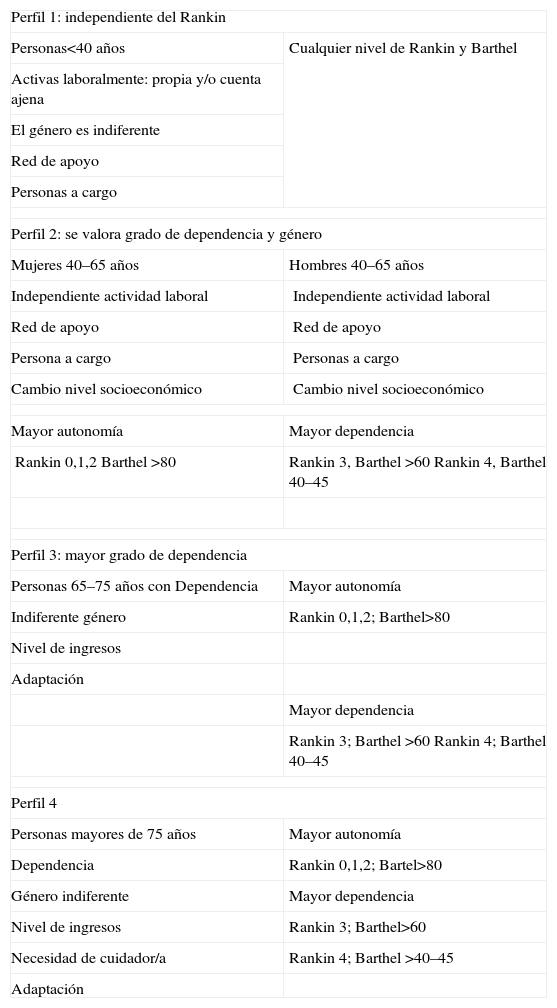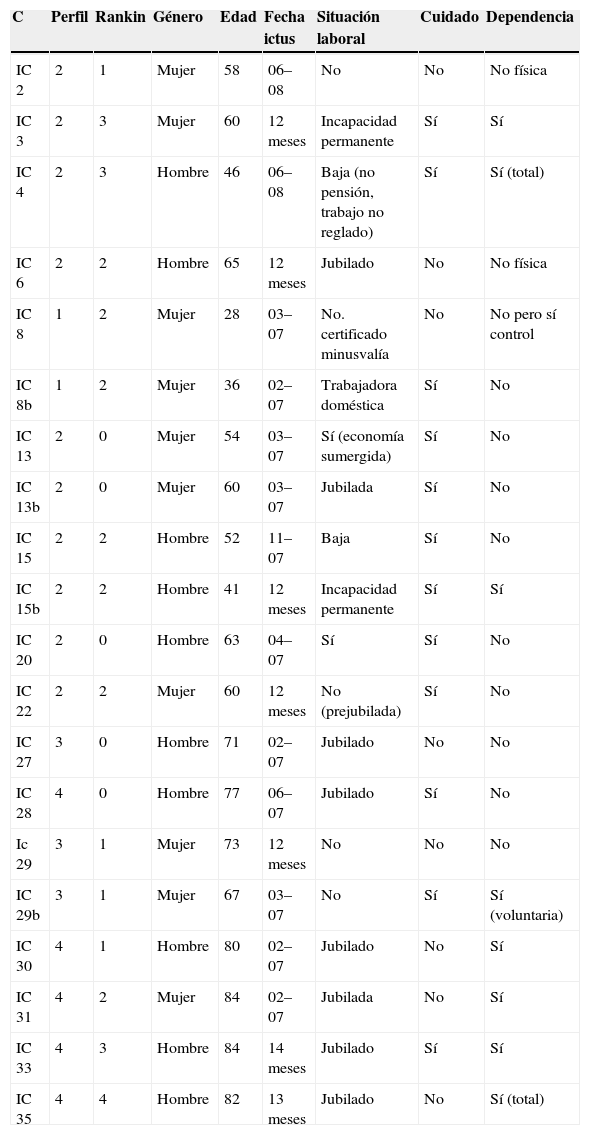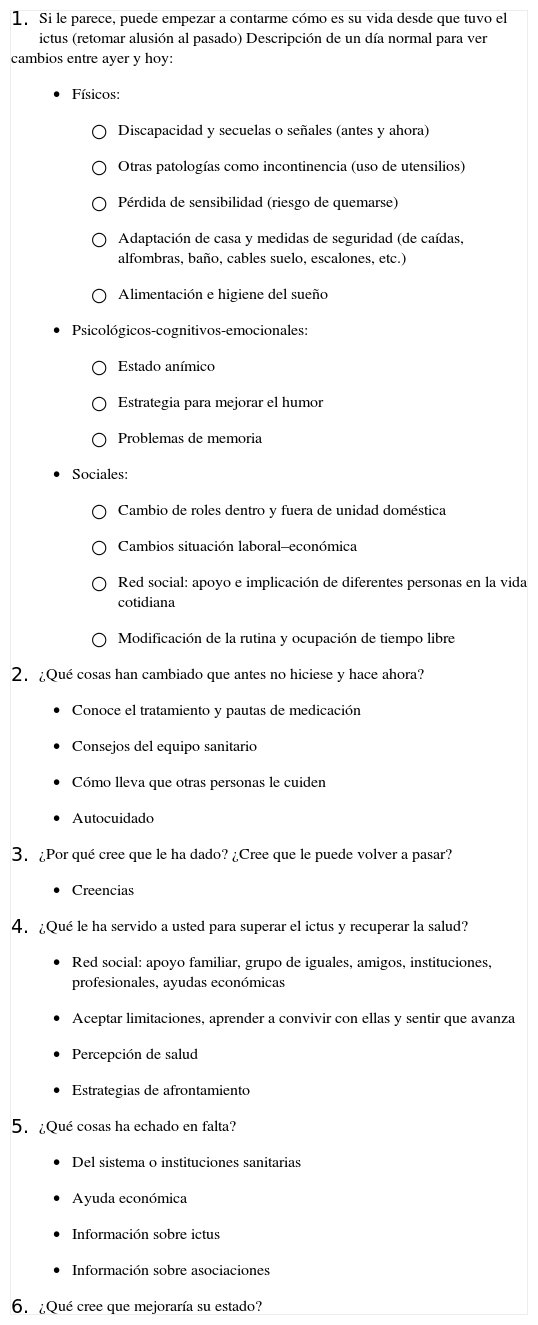Explorar la percepción de calidad de vida que tienen las personas afectadas por el primer episodio de ictus.
MétodoEstudio cualitativo fenomenológico. La recogida de datos ha sido realizada por entrevistas semiestructuradas a pacientes que acudieron a consulta de Neurología del Hospital Ramón y Cajal desde febrero a octubre del 2008. Los 20 participantes se ajustaron al criterio de inclusión de 10–14 meses de evolución y de exclusión de no tener alteradas las funciones psíquicas superiores, ni las de comunicación. El muestreo empleado ha sido por propósito, seleccionados según los perfiles previamente determinados.
ResultadosEl ictus es interpretado como una situación adversa puntual en su salud y no como una enfermedad. La adaptación al entorno supone enfrentarse a las secuelas, lo que influirá directamente en la manera de percibir, construir y organizar sus redes sociales: red social demandada de cuidado—formal e informal— y red social afectada por el cambio—ámbito laboral y amigos—, utilizando diferentes estrategias de afrontamiento, donde hay avances y retrocesos.
ConclusionesLa percepción de calidad de vida es un concepto subjetivo, flexible y particular al sujeto que se ajusta a cada momento del proceso de recuperación y cuya base se centra en cubrir las necesidades demandadas (biopsicosociales) en cada momento de experimentación. Sobrevivir a un ictus es: superar el impacto y recuperar, en la medida de lo posible, las secuelas derivadas; cambiar el estilo de vida individual y compartida; reestructurarse en la nueva identidad y reubicarse en el contexto social.
To examine the perception of quality of life in those affected by the first episode of stroke.
MethodA phenomenological qualitative study. Data collection was carried out by semi-structured interviews with patients attending a neurology clinic in the Ramón y Cajal Hospital from February to October 2008. The 20 participants met the inclusion criteria of 10–14 months of development and the exclusion criteria of not having changes in higher mental functions, or communication. Purposive sampling was used, selected according to predetermined profiles.
ResultsStroke is interpreted as momentary event in health and not a disease. Adjusting to the environment means facing the consequences, which will directly influence the perception of how to build and organise their social networks; a social network demand for care, a formal and informal social network affected by the change, in theworkplace and friends using different coping strategies, with advances and setbacks.
ConclusionsThe perception of quality of life is subjective, flexible and unique to the subject that fits every moment of the process of recovery and whose base is focused on meeting the required bio-psycho-social needs in every phase of experimentation. Surviving a stroke is to overcome the impact and recover, in so far as possible, from the effects arising, changing individual and shared lifestyle, in restructuring the new identity and adjusting to the social context.
Artículo
Comprando el artículo el PDF del mismo podrá ser descargado
Precio 19,34 €
Comprar ahora









